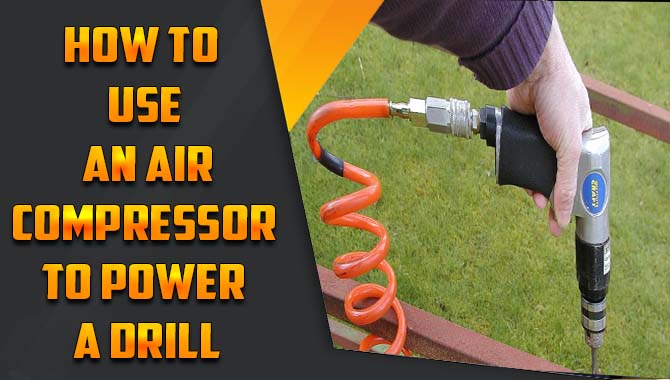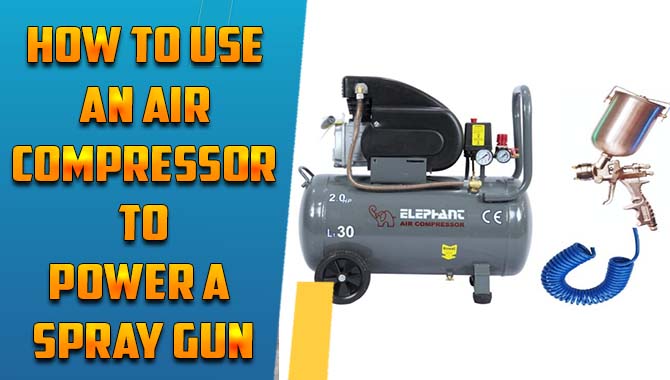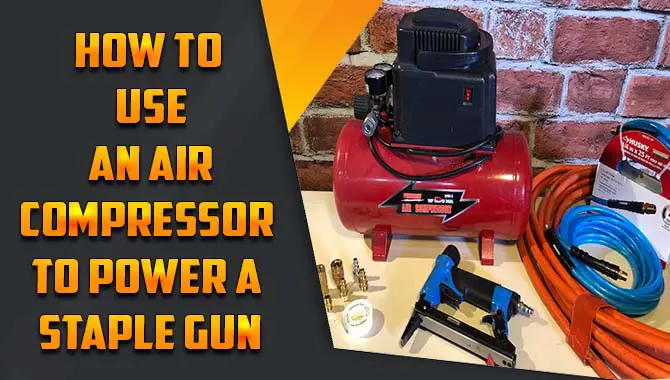An air compressor is a valuable tool that can be used for a wide range of tasks. It can power pneumatic tools, paint sprayers, and even inflate tires.
Like any other equipment, an air compressor requires maintenance to ensure that it operates safely and efficiently. We will cover the importance of air compressor maintenance. And provide expert tips on how to maintain your air compressor with simple steps.
We will also go over the difference between preventive and standard maintenance and provide a recommended preventive maintenance checklist that you can use as a guide. Additionally, we will provide tips for maintaining different types of compressors, such as air-cooled reciprocating compressors, lubricant-injected rotary compressors. And lubricant-free rotary screw compressors.
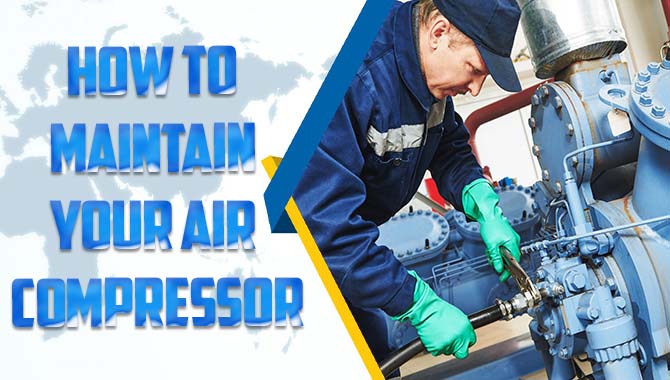
How To Maintain Your Air Compressor – With Simple Tips
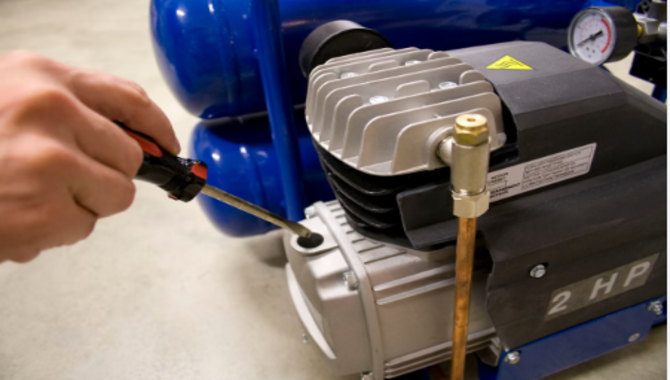
Here are some simple tips on how to maintain your air compressor. Proper maintenance of your air system plays an important role in ensuring the optimal performance of your machine.
Regular checks on various parts can help prevent downtime caused by unexpected malfunctions. While carrying out preventative maintenance checks, always check the oil level with the dipstick and drain moisture from heat exchangers and fuel tanks.
Additionally, replace any worn-out parts like valves, fittings, or fasteners. Keep a checklist handy when servicing to ensure all components are checked systematically. Always change air filters regularly and inspect intake vents for grime buildup or leaks. Following these simple tips, you can extend machinery longevity without compromising performance.
Why Is Air Compressor Maintenance Important?
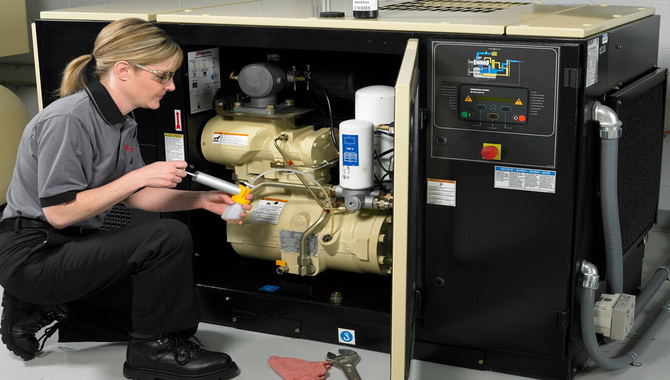
Proper maintenance of your air compressor is crucial for its safe and efficient operation. Neglecting maintenance can lead to decreased performance, increased energy consumption, and even dangerous malfunctions that can cause injuries to individuals nearby.
Regular maintenance not only ensures optimal performance but also prolongs the life of your machine, saving you money in repair or replacement costs. By staying on top of regular checks, you can identify potential issues early on and address them before they become major problems. Don’t wait until something goes wrong; prioritize maintenance to get the most out of your air compressor.
The Difference Between Preventive And Standard Maintenance
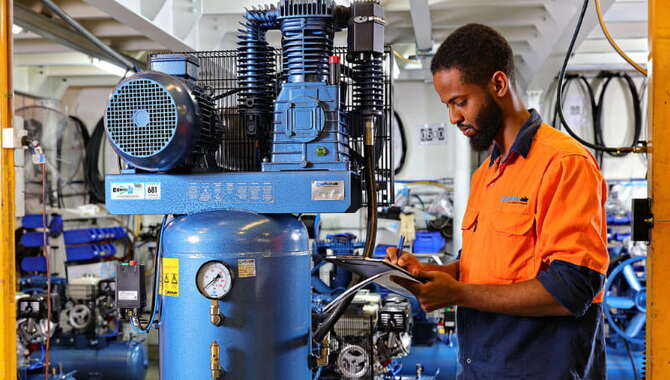
Regular air compressor maintenance plays a great deal in ensuring optimal performance and longevity. Neglecting air compressor servicing often results in costly repairs or replacement of the machinery. Proper maintenance prevents safety hazards like leaks or explosions.
Compressor oil level should be checked with the dipstick, and the oil filters must be changed regularly to prevent contamination from particulates. Additionally, it is a good idea to check fasteners, fittings, hoses, motor bearings, and heat exchangers for any signs of wear and tear.
A preventative maintenance checklist that includes cleaning or replacing air filters, draining moisture, checking for leaks at intake vents, lubricating moving parts, inspecting fittings for corrosion and grime buildup is the only way to ensure that your industrial air compressor operates efficiently.
Recommended Preventive Maintenance Checklist
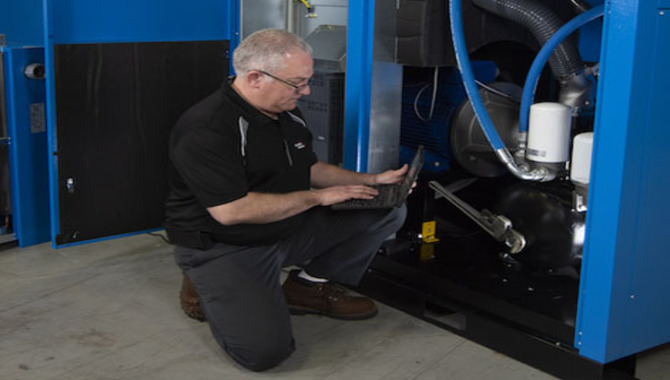
Maintaining an air compressor is crucial for optimal performance and longevity. Neglecting proper maintenance can lead to costly repairs or replacements of the equipment. To increase the lifespan of your compressor, ensure you check the oil level daily, drain moisture from the receiver tank daily, and inspect belts, hoses, and fittings monthly.
Another good idea is to change air filters quarterly, inspect valve and fastener functions quarterly, and lubricate motor bearings regularly. Keep in mind that ensuring a clean environment for your compressor prevents grime buildup or even corrosion. Remember these tips to keep your air compressor system running at its best.
How To Create A Preventive Maintenance Schedule?
To create a preventive maintenance schedule for your air compressor, make a list of required tasks and their frequency based on manufacturer recommendations or experience. Assign responsibility to designated individuals and set up a calendar for timely completion.
Regular maintenance can prevent costly breakdowns and extend the lifespan of your equipment. Additionally, keeping a log of maintenance tasks and repairs can help track patterns, identify issues early on, and improve overall efficiency.
Tips For Maintaining Air-Cooled Reciprocating Compressor
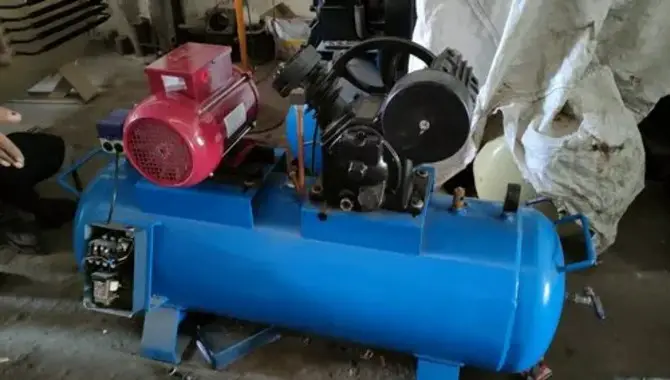
Regular maintenance is crucial to ensuring that your air compressor system operates at peak efficiency. To maintain your air-cooled reciprocating compressor, start by cleaning or replacing the air intake filter regularly to prevent particulates and contaminants from entering the system.
Inspect valves, hoses, and fittings for signs of wear or corrosion as part of your preventative maintenance checklist. Additionally, draining moisture from the receiver tank is crucial for preventing rust and downtime.
By following these simple tips and incorporating proper lubrication practices into your maintenance schedule, you can extend the longevity of your machinery and avoid costly repairs.
Lubricant-Injected Rotary Compressor Maintenance Tips
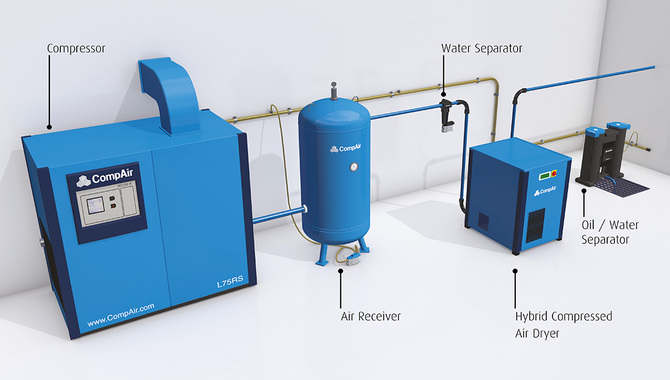
Maintaining the optimal performance of your lubricant-injected rotary compressor involves several essential measures. Always check the fasteners’ tightness and inspect the inlet and outlet valve for any leakages or grime build-up. If required, the air intake filter should be checked regularly for cleaning or replacement.
It is crucial to drain moisture periodically from separators and receiver tanks to avoid condensate buildup. Compressor oil should be checked often using a dipstick; change it whenever necessary to prevent bearing damage or downtime. Ensure that motor bearings are lubricated following proper procedures as mentioned in the machinery manual.
Lubricant-Free Rotary Screw Compressor Maintenance Tips
Proper maintenance is crucial for optimal performance of lubricant-free rotary screw compressors. To maintain your air compressor system efficiently and prolong its longevity, it is important to determine specific maintenance tasks required for your compressor model.
Following manufacturer recommendations and usage frequency guidelines are crucial before setting a schedule for preventative maintenance. Assigning responsible personnel who can record completion dates should be done before reviewing and adjusting the preventive maintenance schedule as needed.
Checking the oil level regularly using the dipstick and changing air filters when necessary are essential steps while draining moisture from receiver tanks. Using separators will help remove particulates and contaminants from compressed air.
Which Maintenance Checks Should A Technician Perform?
When it comes to air compressor maintenance, it’s important for technicians to perform a range of checks to ensure optimal performance. This can include inspecting valves, hoses, and fittings for leaks or wear and tear, as well as checking the air filter for any buildup of grime or other contaminants.
Technicians should also check the oil level, drain condensate from receivers and separators, and lubricate bearings according to manufacturer guidelines. Overall, regular preventative maintenance can help minimize downtime and extend the lifespan of your air compressor system.
Create Your Air Compressor Preventive Maintenance Plan
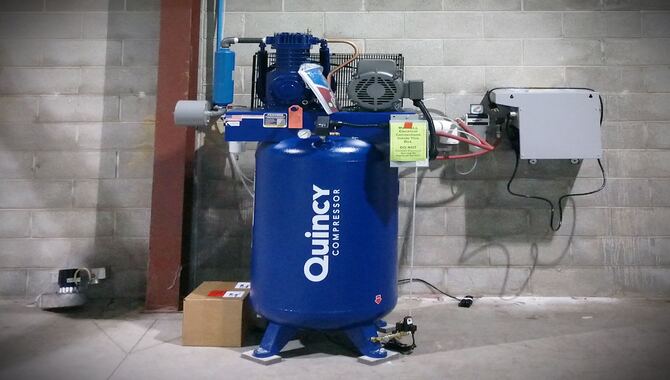
To ensure that your air compressor system functions optimally for an extended period, it is vital to create a preventive maintenance plan that includes checking air filters regularly, monitoring oil levels as recommended by the manufacturer, inspecting belts, hoses, and fittings for wear and damage, cleaning the compressor’s cooling system thoroughly, scheduling routine servicing with an expert technician.
Proper care significantly contributes to the machinery’s longevity. First things first – check the dipstick or oil level before starting the machine every day. It is also essential to drain moisture from separators and heat exchangers frequently to prevent corrosion.
Finally, maintaining a clean fuel tank is crucial to prevent rust buildup in receivers or other parts of the compressed air system that could cause downtime.
Conclusion
Air compressors are essential equipment that helps in powering several tools. Regular air compressor maintenance ensures that it remains efficient and durable over the years. It is important to understand the difference between preventive and standard maintenance and create a schedule that works for your specific type of compressor.
Technicians can help with carrying out certain checks, but there are also simple tips you can follow on how to maintain your air compressor on your own. Create a plan that includes regular checks and cleaning, lubrication, and replacement of parts as needed. By following these expert tips, you can ensure the longevity of your air compressor and avoid costly repairs or replacements.
Frequently Asked Questions
What Should I Do If My Air Compressor Stops Working?
If your air compressor stops working, check the power source and cord connection first. Clean or replace the air filter and ensure all connections are secure. If the issue persists, refer to the manufacturer’s manual or seek professional help.
Should I Check The Pressure Relief Valve Before I Call A Repairman?
It’s important to check the pressure relief valve if your air compressor is not working properly. This valve ensures safety by releasing excess pressure from the tank, and malfunctioning valves can cause damage or danger. Checking it is easy and may save you money on repairs.
Is It Possible To Repair An Air Compressor On My Own, Or Should I Just Buy A New One?
Whether you can repair your air compressor on your own depends on the issue. Simple fixes like leaks or part replacements may be DIYable, but more complex problems like a motor or electrical faults require professional help. Weigh the costs and feasibility of repairing versus buying a new compressor before deciding.
How Much Is An Air Compressor, And How Long Will It Last?
The price of an air compressor varies depending on size, brand, and features. Small portable compressors can range from $100 to $300 while larger industrial compressors can cost thousands. The lifespan ranges from 5 to 15 years, depending on usage and maintenance.
What Common Signs Of Wear And Tear That I Should Look Out For In My Air Compressor?
Some common signs of wear and tear in air compressors are abnormal noises like grinding or hissing, reduced performance, and leaks in the tank or fittings. Regular maintenance and inspections can help identify these issues early to prevent further damage.

I am passionate about home engineering. I specialize in designing, installing, and maintaining heating, ventilation, and air conditioning systems. My goal is to help people stay comfortable in their homes all year long.
